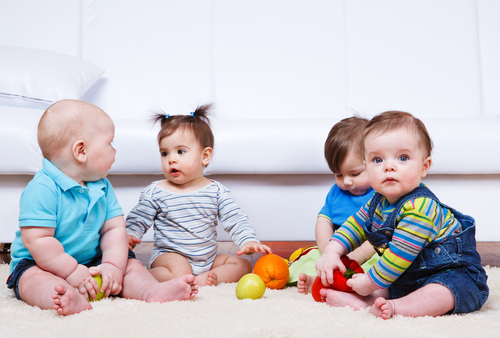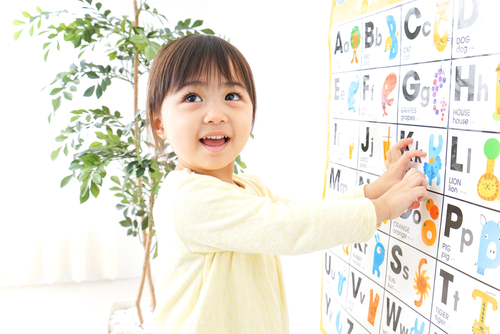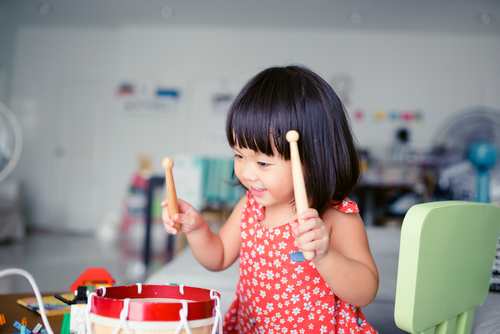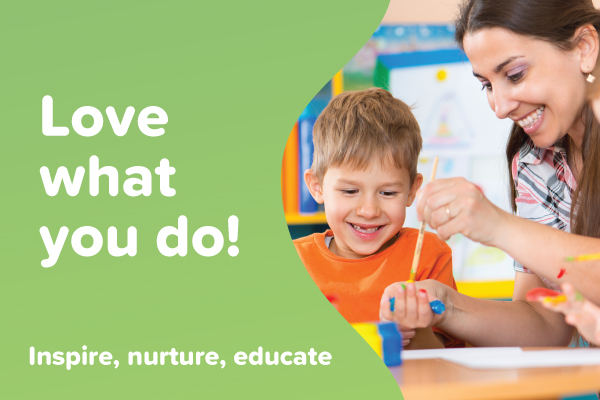Friendships are a special part of life, and they also play a vital role in a child’s development. Working in early childhood education there is the opportunity to foster an environment where children can learn to form meaningful friendships.
It is a great time for a refresher on how early childhood educators can support children developing friendships, having a positive impact on their social development. By understanding the importance of social connections and implementing strategies to nurture them, we can empower children to build lasting relationships from an early age.
Let’s explore six strategies to incorporate in your early childhood education setting that will lay a strong foundation for children’s ability to navigate socialising and friendships as they grow.

1. Create an inclusive and welcoming environment
To foster friendships, it is essential to establish a warm and inclusive environment within the early childhood education centre. Encourage children to celebrate diversity, appreciate differences, and develop empathy.
Provide materials, toys, and books that reflect various cultures, abilities, and backgrounds. This promotes understanding and acceptance among children, creating a sense of belonging for everyone.
2. Encourage age-appropriate play
A child’s age and stage of development will determine what you can expect from the way they will play and interact with other children. When assessing ideas for play and socialisation for children, keep their developmental stage in mind. This can be a helpful guide:
Age 1-3 years old
- Parallel play: Playing alongside but not actively engaging with each other.
- Basic interaction: Simple exchanges of toys, smiles, and gestures.
- Imitative play: Copying each other’s actions and behaviours.
- Limited sharing: Reluctant to share toys but may take turns with adult guidance.
- Exploration and curiosity: Discovering the world together through play.
Age 3-5 years old
- Cooperative play: Engaging in activities together, sharing roles and responsibilities.
- Pretend play: Engaging in imaginative play scenarios, taking on different roles.
- Developing empathy: Beginning to understand and respond to others’ feelings.
- Group play: Participating in small groups for games and activities.
- More complex sharing: Willing to share toys and materials for cooperative play.
Age 6-8 years old
- Rule-based play: Engaging in games with established rules and guidelines.
- Team play: Playing in larger groups with defined roles and teamwork.
- Developing conflict resolution skills: Learning to resolve disagreements independently.
- Friendships with shared interests: Forming friendships based on common hobbies and activities.
Creating play activities that consider these stages will help lay the foundation for strong friendships over the years.
3. Explore role play and story-telling
As educators, we can play a significant role in teaching social skills to young children. Make sure you are role modelling appropriate behaviours, such as active listening, taking turns, sharing, and resolving conflicts peacefully. It can be useful to point out the behaviours you are demonstrating to reinforce the message.
Add storytelling, puppetry, or role-playing into your planning to demonstrate positive social interactions and problem-solving techniques. By providing children with the necessary tools to navigate social situations, we empower them to forge and maintain meaningful friendships.
4. Foster positive communication
Effective communication is essential in many areas of life, friendships included. By encouraging children to express their thoughts and emotions, listen actively, and respond respectfully we can give them tools to use to create bonds with others.
Teach them how to use words to express their feelings, needs, and desires. Encourage open dialogue and active participation during group discussions. This can also assist children with resolving conflicts amicably — a skill for life.
5. Facilitate peer interactions
Create opportunities for children to engage in peer interactions throughout the day. Arrange small group activities, partner work, or buddy systems, where children can collaborate and support one another.
Encourage conversations during meal times, circle or mat time, and outdoor play. By facilitating peer interactions, we provide children with the chance to develop friendships naturally and organically.
6. Engage parents and families
Collaboration between educators and parents is really important to support children’s development across the board. It can certainly go a long way to nurture budding friendships too.
Initiate open and regular communication with families to understand each child’s unique social experiences and strengths, sharing strategies that parents can try at home to reinforce friendship skills. Consider organising family events that focus on fostering friendships, or help parents to share contact details with one another to continue friendships outside of the early childhood education setting.

Guiding educators with support and training
At Practical Outcomes, we understand the critical role educators play in shaping children’s social and emotional development. In early childhood education career, you have the power to make a difference and nurture children’s ability to form meaningful friendships in their lives.
Let Friendship Day inspire you to celebrate and reinforce the importance of friendships in early childhood education Together we can empower children to build lasting connections and thrive.




